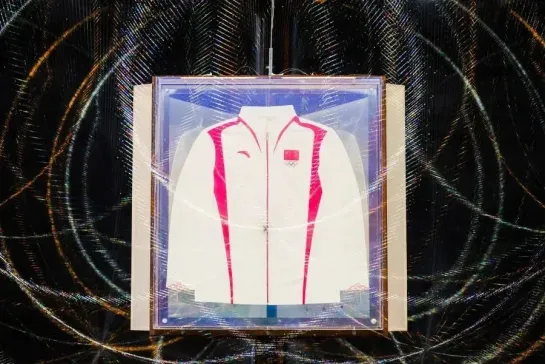
- Afrikaans
- Albanian
- Amharic
- Arabic
- Armenian
- Azerbaijani
- Basque
- Belarusian
- Bengali
- Bosnian
- Bulgarian
- Catalan
- Cebuano
- Corsican
- Croatian
- Czech
- Danish
- Dutch
- English
- Esperanto
- Estonian
- Finnish
- French
- Frisian
- Galician
- Georgian
- German
- Greek
- Gujarati
- haitian_creole
- hausa
- hawaiian
- Hebrew
- Hindi
- Miao
- Hungarian
- Icelandic
- igbo
- Indonesian
- irish
- Italian
- Japanese
- Javanese
- Kannada
- kazakh
- Khmer
- Rwandese
- Korean
- Kurdish
- Kyrgyz
- Lao
- Latin
- Latvian
- Lithuanian
- Luxembourgish
- Macedonian
- Malgashi
- Malay
- Malayalam
- Maltese
- Maori
- Marathi
- Mongolian
- Myanmar
- Nepali
- Norwegian
- Norwegian
- Occitan
- Pashto
- Persian
- Polish
- Portuguese
- Punjabi
- Romanian
- Russian
- Samoan
- scottish-gaelic
- Serbian
- Sesotho
- Shona
- Sindhi
- Sinhala
- Slovak
- Slovenian
- Somali
- Spanish
- Sundanese
- Swahili
- Swedish
- Tagalog
- Tajik
- Tamil
- Tatar
- Telugu
- Thai
- Turkish
- Turkmen
- Ukrainian
- Urdu
- Uighur
- Uzbek
- Vietnamese
- Welsh
- Bantu
- Yiddish
- Yoruba
- Zulu
Th2 . 13, 2025 20:23
Back to list
Tc 80/20 110x76 44 Inches Poplin Solid Dyed Fabric Close Selvage
In the realm of textiles, polyester fabric has become a stalwart choice for a myriad of applications, from everyday clothing to high-performance sportswear, and even in home furnishings. The affinity for polyester spans across industries due to its versatility, durability, and cost-efficiency. This exploration delves into the multifaceted uses of polyester fabric, unearthing insights that reflect its prominence and reliability in various sectors.
Industrial applications further underscore the versatility of polyester fabric. Its robustness under stress has led to its use in safety gear and workwear, where resistance to tears and chemical spills is critical. Polyester's ability to blend with other materials enhances protective garments, fortifying them against the physical and environmental challenges encountered in various labor-intensive sectors. Sustainability considerations in manufacturing have urged textile innovators to develop recycled polyester options, mitigating the environmental impact associated with traditional production. Recycled polyester or rPET, crafted from used plastic bottles and other post-consumer recycled materials, offers an eco-friendly alternative without compromising the benefits provided by virgin polyester. This sustainable approach not only reduces landfill dependency but also decreases the carbon footprint of textile production, aligning polyester’s evolution with global environmental goals. Despite polyester's widespread acceptance and utility, mindful usage necessitates consideration of its impact on the environment and possible implications for consumers favoring breathable, natural fibers. Polyester’s inability to biodegrade demands responsible recycling and disposal efforts to diminish its environmental impact. Conclusively, polyester fabric signifies more than just a versatile material. It represents an intersection of innovation, functionality, and accessibility in today's textile industry. As a testament to modern manufacturing capabilities, polyester thrives in diverse environments, demonstrating adaptability and extensive application potential. Its role in the textile industry is poised for continued evolution as sustainability becomes an integral aspect of its lifecycle, promising ongoing advancements and opportunities for usage across multiple domains.


Industrial applications further underscore the versatility of polyester fabric. Its robustness under stress has led to its use in safety gear and workwear, where resistance to tears and chemical spills is critical. Polyester's ability to blend with other materials enhances protective garments, fortifying them against the physical and environmental challenges encountered in various labor-intensive sectors. Sustainability considerations in manufacturing have urged textile innovators to develop recycled polyester options, mitigating the environmental impact associated with traditional production. Recycled polyester or rPET, crafted from used plastic bottles and other post-consumer recycled materials, offers an eco-friendly alternative without compromising the benefits provided by virgin polyester. This sustainable approach not only reduces landfill dependency but also decreases the carbon footprint of textile production, aligning polyester’s evolution with global environmental goals. Despite polyester's widespread acceptance and utility, mindful usage necessitates consideration of its impact on the environment and possible implications for consumers favoring breathable, natural fibers. Polyester’s inability to biodegrade demands responsible recycling and disposal efforts to diminish its environmental impact. Conclusively, polyester fabric signifies more than just a versatile material. It represents an intersection of innovation, functionality, and accessibility in today's textile industry. As a testament to modern manufacturing capabilities, polyester thrives in diverse environments, demonstrating adaptability and extensive application potential. Its role in the textile industry is poised for continued evolution as sustainability becomes an integral aspect of its lifecycle, promising ongoing advancements and opportunities for usage across multiple domains.
Latest news
-
The Versatility and Elegance of White Cotton Poplin FabricNewsJun.23,2025
-
The Luxurious Comfort of Carded CottonNewsJun.23,2025
-
Explore the Luxurious Comfort of Cotton Flannel ClothNewsJun.23,2025
-
Discover the Versatility of Cotton Poplin ClothNewsJun.23,2025
-
Bleach Cotton FabricNewsJun.23,2025
-
100 Cotton BlendNewsJun.23,2025
-
Versatile Elegance with Poplin Fabric for SaleNewsMay.15,2025
